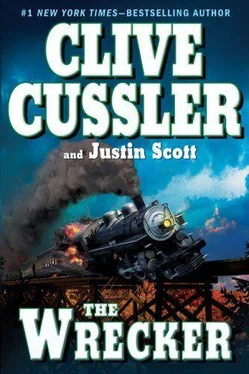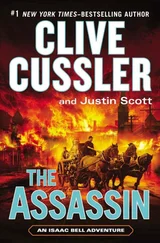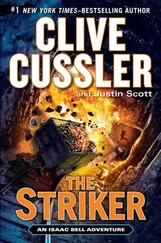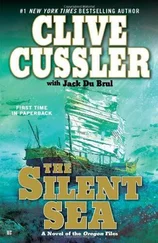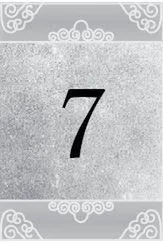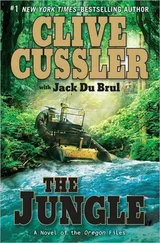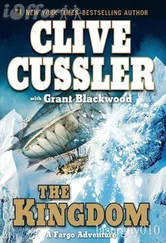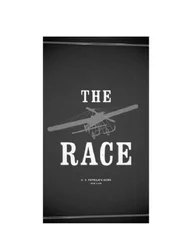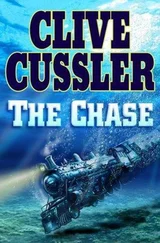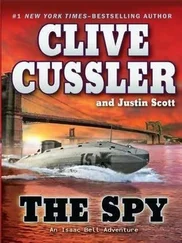“What time?” Bell wired back.
The return wire was a testament to the Wrecker’s inside information. Adjusting for the difference between Pacific and Central time zones, the first alarm for the fire had been turned in less than two hours after Bell had confronted Franklin Mowery with his suspicions about Eric Soares.
Bell had seen Emma Comden with Hennessy when Mowery reported his concerns about the piers. But within minutes, Hennessy had summoned a dozen cutoff engineers to access the potential for disaster that Mowery feared. So Emma was not the only one aware. Still, Bell had to wonder whether the beautiful woman was playing the old man for a fool.
Bell went looking for Mowery and found him in one of the guard shacks protecting the piers. There were tears in the old man’s eyes. He had blueprints spread out on the table where the railroad cops ate supper and a folder of reports filed by Eric Soares.
“False,” he said, thumbing through the pages. “False. False. False. False… The piers are unstable. A flood of water will cause them to collapse.”
Bell found it hard to believe. From where he stood in the guard shack, the massive stone piers supporting the airy towers that held the bridge truss looked solid as fortresses.
But Mowery nodded bleakly out the window at a barge tied alongside the nearest pier. Tenders lifted a diver out of the water and unhinged his faceplate. Bell recognized the new Mark V helmet. That the company spared no expense was yet another indication of the importance of the bridge.
“What do you mean?” Bell asked.
Mowery fumbled for a pencil and drew a sketch of the pier standing in the water. At the foot of the pier, he scratched the pencil point through the paper.
“We call it scour. The effect of scour occurs when the water scoops a hole in the riverbed immediately upstream of the pier. All of a sudden, the footing is not supported. It will plunge into this hole or crack under the unequal forces… We have built our house on sand.”
ISAAC BELL WALKED ACROSS THE CASCADE CANYON BRIDGE.
The span was dead silent. All train traffic had been stopped. The only sounds Bell could hear were the click of his boot heels and the echo of the rapids far below. No one knew how unstable the bridge was yet, but the engineers all agreed it was only a matter of time and water flow before it fell. When he reached the midpoint between the lips of the gorge, he stared down at the river tumbling against the flawed piers.
He was staggered by the Wrecker’s audacity.
Bell had wracked his brain to predict how the Wrecker would attack the bridge. He had guarded every approach, guarded the piers themselves, and watched the work gangs with an eagle eye. It had never occurred to him that the criminal had already attacked it, two full years ago, before they started building the bridge.
Bell had stopped him in New York City. He had stopped him on the rails. He had stopped him all the way through Tunnel 13 right up to the bridge. But here, under this bridge, the Wrecker had proved his mettle with a devastating long-term counterthrust in case all else failed.
Bell shook his head partly in anger and partly in grim admiration for his enemy’s skills. The Wrecker was despicable, a merciless killer, but he was formidable. This sort of planning and execution went far beyond even the New York dynamite attack.
All that Isaac Bell could say in his own defense was that when the Cascade Canyon Bridge fell into the gorge, at least it would not come as a surprise. He had uncovered the plot before the catastrophe. No train loaded with innocent workmen would fall with it. But though no people would die, it was still a catastrophe. The cutoff, the vast project he had vowed to protect, was as good as dead.
He sensed someone walking toward him and knew who it was even before he smelled her perfume.
“My darling,” he called without turning his bleak gaze from the water, “I’m up against a mastermind.”
“A ‘Napoleon of crime’?” Marion Morgan asked.
“That’s what Archie calls him. And he’s right.”
“Napoleon had to pay his soldiers.”
“I know,” Bell said bleakly. “Think like a banker. That hasn’t gotten me very far.”
“There is something else to remember,” said Marion. “Napoleon may have been a mastermind, but in the end he lost.”
Bell turned around to look at her. Half expecting a sympathetic smile, he saw instead a big grin filled with hope and belief. She was incredibly beautiful, her eyes alight, her hair shining as if she had bathed in sunlight. He could not help but smile back at her. Suddenly, his smile exploded into a grin as broad at hers.
“What is it?” she asked.
“Thank you for reminding me that Napoleon lost.”
She had set his mind churning again. He scooped her exuberantly into his arms, winced from the lingering pain of Philip Dow’s bullet to his right arm, and shifted her smoothly into his unscathed left.
“Once again I have to leave you right after you arrive. But this time it’s your fault because you really made me think.”
“Where are you going?”
“I’m going back to New York to interrogate every banker in the railroad business. If there’s an answer to the riddle of why he is attacking this railroad, it will come from Wall Street.”
“Isaac?” Marion took his hand, “Why don’t you go to Boston?”
“The biggest banks are in New York. Hennessy and Joe Van Dorn can pull strings. I’ll start with J. P. Morgan and work my way down.”
“The American States Bank is in Boston.”
“No.”
“Isaac, why not ask your father? He is vastly experienced in finance. When I worked in banking, he was a legend.”
Bell shook his head. “I’ve told you that my father was not happy that I became a detective. In truth, he was heartbroken. Men who are legends hope their sons will continue building on the foundations that they laid. I do not regret going my own way. But I have no right to ask him to forgive me.”
Bell hurried to Osgood Hennessy’s private car to ask him to make arrangements in New York. He found him in a gloomy state of worry and defeat. Franklin Mowery was with him. Both men appeared shattered. And they seemed to reinforce each other’s pessimism.
“Ninety percent of my cutoff is on the far side of the bridge,” the railroad president mourned. “All in place for the final push. Track, coal, ties, creosote plant, roundhouse, locomotives, machine shops. All on the wrong side of a bridge that won’t hold a wheelbarrow. I’m whipped.”
Even the normally cheerful Mrs. Comden seemed defeated. Still, she tried to buck him up, saying sympathetically, “Perhaps it is time to let Nature take her course. Winter is coming. You can start fresh next year. Start over in the spring.”
“I’ll be dead by spring.”
Lillian Hennessy’s eyes flashed angrily. She exchanged a grim look with Isaac Bell. Then she sat down at the telegraph table and perched her fingers on the key.
“Father,” she said, “I better wire the Sacramento shop.”
“Sacramento?” Hennessy asked distractedly. “What for?”
“They’ve finished fabricating truss rods for the Cascade Canyon Bridge. So they have time to build a pair of rocking chairs.”
“Rocking chairs? What the devil for?”
“For retirement. For two of the sorriest geezers I ever saw in my life. Let’s build a porch on the roundhouse you can rock on.”
“Now, hold on, Lillian.”
“You’re giving up, just like the Wrecker wants.”
Hennessy turned to Mowery and asked him, with little hope in his voice, “Is there any chance of shoring up those piers?”
“Winter’s closing in,” Mowery muttered. “We’ve got Pacific storms bearing down on us, water’s already rising.”
Читать дальше
